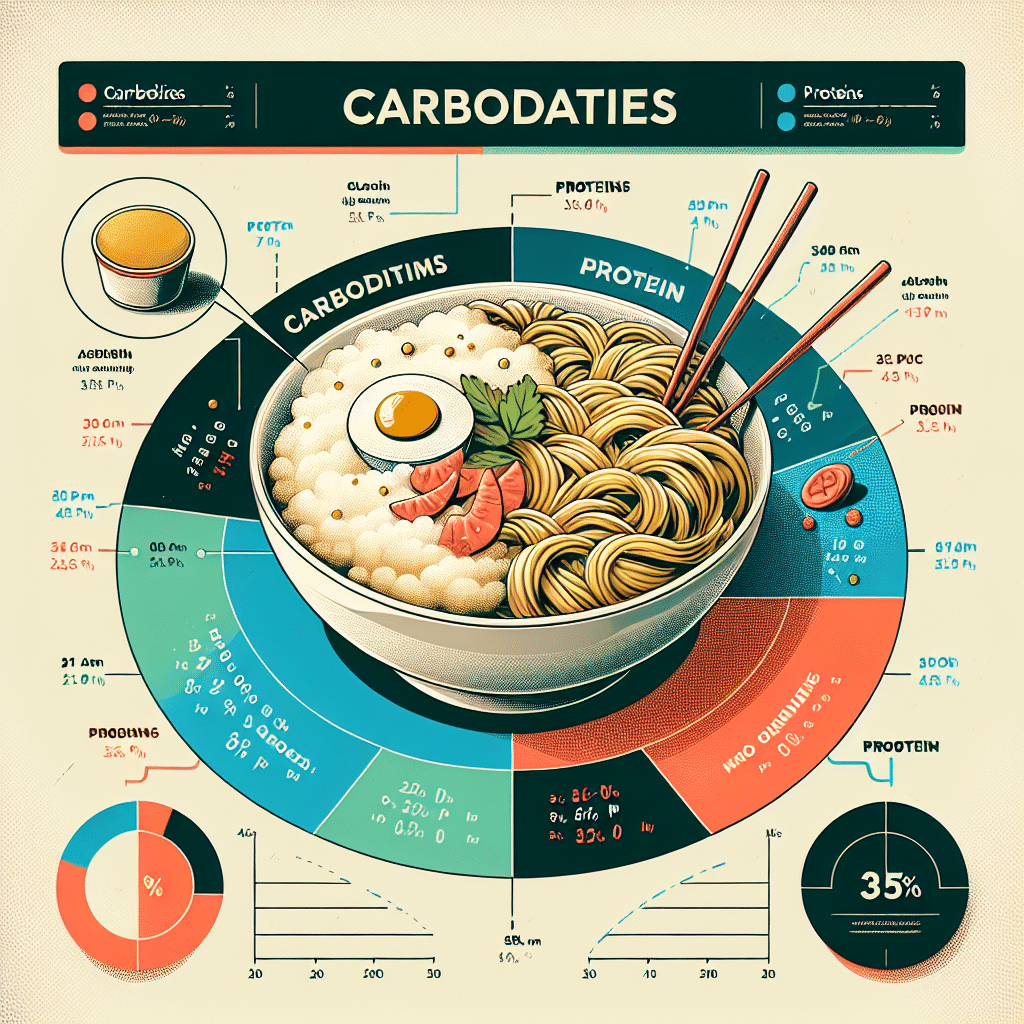Noodles Protein: Carb and Protein Balance
-
Table of Contents
- Noodles Protein: Achieving the Perfect Carb and Protein Balance
- Understanding Macronutrients in Noodles
- Types of Noodles and Their Nutritional Profiles
- The Importance of Protein in Your Diet
- How Much Protein Do You Need?
- Carb and Protein Balance in Noodles
- Strategies for Balancing Carbs and Protein in Noodle Dishes
- Case Studies and Statistics
- Conclusion: Noodles with a Nutritional Boost
- Enhance Your Noodle Dishes with ETprotein’s High-Quality Protein Products
Noodles Protein: Achieving the Perfect Carb and Protein Balance

Noodles are a staple in many diets around the world, offering a quick, easy, and versatile meal option. However, with the growing awareness of the importance of macronutrient balance, particularly the balance between carbohydrates and proteins, health-conscious individuals are taking a closer look at their noodle consumption. This article delves into the nutritional aspects of noodles, focusing on their protein content and how to achieve a healthy balance between carbs and proteins in your noodle-based meals.
Understanding Macronutrients in Noodles
Before we dive into the specifics of protein in noodles, it’s essential to understand the macronutrient composition of this popular food. Noodles are primarily made from flour, water, and sometimes eggs, which means they are predominantly a source of carbohydrates. The protein content can vary depending on the type of noodle and its ingredients.
Types of Noodles and Their Nutritional Profiles
- Traditional Wheat Noodles: These noodles are high in carbohydrates and have a moderate amount of protein, typically around 7-8 grams per serving.
- Egg Noodles: The addition of eggs increases the protein content slightly, offering about 10 grams per serving.
- Whole Grain Noodles: Made from whole wheat flour, these noodles provide more fiber and a slightly higher protein content than their refined counterparts.
- Alternative Flour Noodles: Noodles made from legume flours, such as chickpeas or lentils, can have a significantly higher protein content, sometimes up to 20 grams per serving.
The Importance of Protein in Your Diet
Protein is a crucial macronutrient that plays a vital role in building and repairing tissues, producing enzymes and hormones, and supporting immune function. It’s also essential for muscle growth and maintenance, making it particularly important for athletes and those looking to build or maintain muscle mass.
How Much Protein Do You Need?
The Recommended Dietary Allowance (RDA) for protein is 0.8 grams per kilogram of body weight per day for the average adult. However, this amount can vary based on factors such as age, sex, physical activity level, and overall health.
Carb and Protein Balance in Noodles
While noodles can be a comforting and satisfying meal, they are often criticized for being too high in carbohydrates and too low in protein. This imbalance can lead to spikes in blood sugar levels and may not provide the sustained energy or satiety that comes from a more balanced meal.
Strategies for Balancing Carbs and Protein in Noodle Dishes
- Add Lean Protein: Incorporate lean meats, poultry, fish, or tofu into your noodle dishes to boost the protein content.
- Choose High-Protein Noodles: Opt for noodles made from alternative flours like chickpea or lentil to increase the protein content without sacrificing the noodle experience.
- Include Legumes: Beans and lentils can be a great addition to noodle dishes, providing both protein and fiber.
- Top with Nuts and Seeds: Sprinkle nuts or seeds, such as almonds or pumpkin seeds, on top of your noodle dish for an extra protein punch.
Case Studies and Statistics
Research has shown that meals with a balanced ratio of carbohydrates to protein can help control hunger and maintain energy levels. For example, a study published in the “Journal of Nutrition” found that participants who consumed a meal with a higher protein content experienced greater satiety and a lower desire to eat later in the day compared to those who consumed a high-carbohydrate meal.
Another study in the “American Journal of Clinical Nutrition” highlighted the benefits of a higher protein intake for weight management. Participants who increased their protein intake to 30% of their total calories consumed fewer calories overall and reported feeling more satisfied after meals.
Conclusion: Noodles with a Nutritional Boost
In conclusion, while noodles are traditionally seen as a carbohydrate-heavy food, they can be part of a balanced diet when combined with the right ingredients. By choosing high-protein noodles or adding protein-rich toppings and sides, you can transform a simple noodle dish into a nutritious meal that supports your health goals. Remember to consider your individual dietary needs and consult with a healthcare professional or a registered dietitian for personalized advice.
Enhance Your Noodle Dishes with ETprotein’s High-Quality Protein Products
If you’re looking to increase the protein content of your noodle dishes, consider incorporating ETprotein’s range of plant-based protein powders. These high-quality protein sources can easily be added to noodle recipes, providing a neutral taste while boosting the nutritional value of your meals.
ETprotein’s products are non-GMO, allergen-free, and suitable for a variety of dietary preferences, making them an excellent choice for anyone looking to enhance their protein intake. Whether you’re preparing a hearty noodle soup or a savory stir-fry, ETprotein’s protein powders can help you achieve the perfect carb and protein balance.
About ETprotein:
ETprotein, a reputable plant protein vegan protein Chinese factory manufacturer and supplier, is renowned for producing, stocking, exporting, and delivering the highest quality organic bulk vegan protein and plant proteins. They include Organic rice protein, clear rice protein, pea protein, clear pea protein, watermelon seed protein, pumpkin seed protein, sunflower seed protein, mung bean protein, peanut protein etc. Their offerings, characterized by a neutral taste, non-GMO, allergen-free attributes, cater to a diverse range of industries. They serve nutraceutical, pharmaceutical, cosmeceutical, veterinary, as well as food and beverage finished product distributors, traders, and manufacturers across Europe, USA, Canada, Australia, Thailand, Japan, Korea, Brazil, and Chile, among others.
ETprotein specialization includes exporting and delivering tailor-made protein powder and finished nutritional supplements. Their extensive product range covers sectors like Food and Beverage, Sports Nutrition, Weight Management, Dietary Supplements, Health and Wellness Products, and Infant Formula, ensuring comprehensive solutions to meet all your protein needs.
As a trusted company by leading global food and beverage brands and Fortune 500 companies, ETprotein reinforces China’s reputation in the global arena. For more information or to sample their products, please contact them and email sales(at)ETprotein.com today.












